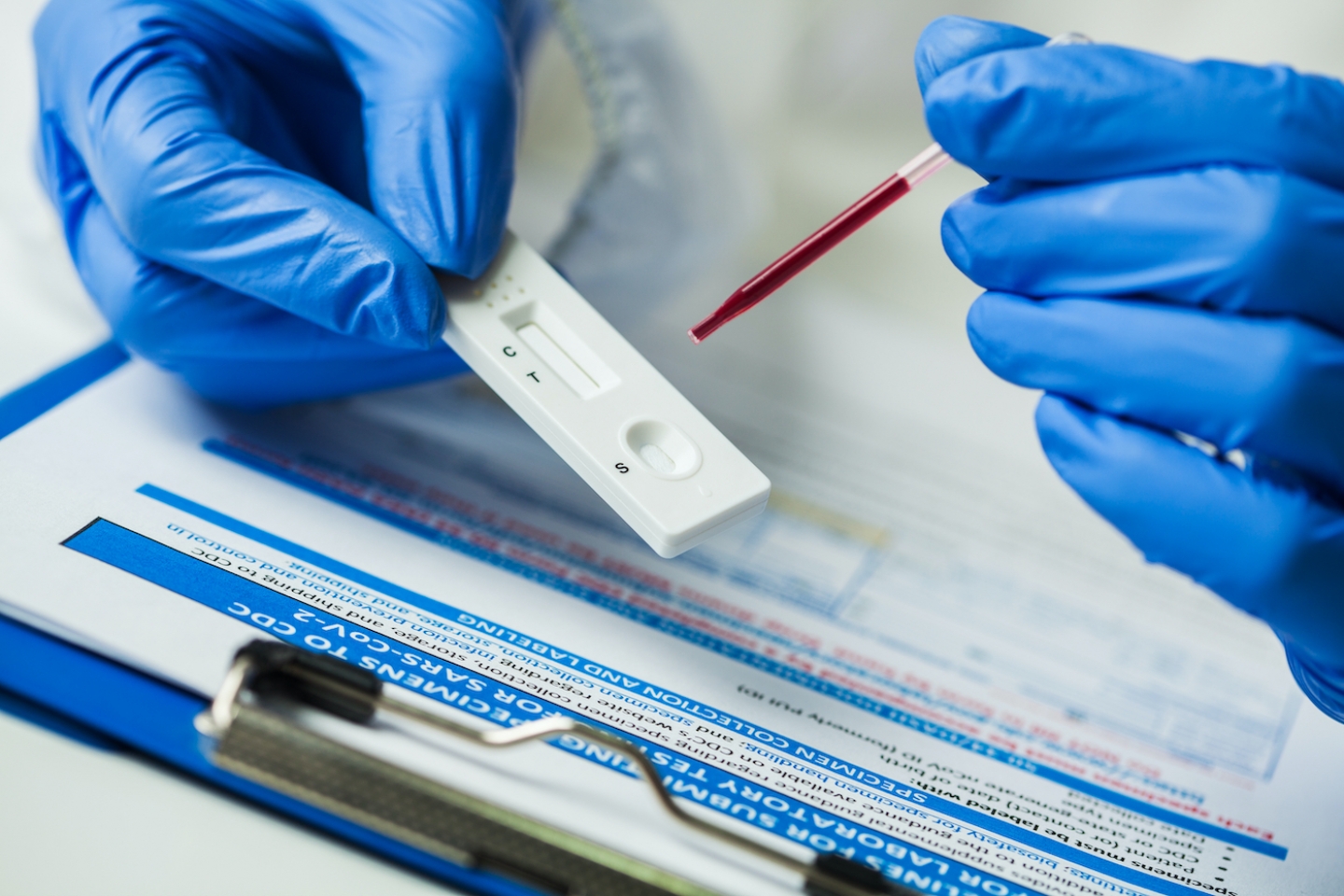
Anytime our body fights off a virus, it leaves an indelible mark in our blood stream. This “mark” is called an antibody.
If you believe that you may have had COVID-19 and did not get tested while you were ill, you might be a perfect candidate for an antibody test. Many medical institutions and walk-in clinics around the country are now offering this vital test to help reduce some uncertainty.
You might be wondering how the antibody test is different from the COVID-19 “swab” tests (also called a PCR test) that we heard so much about at the onset of the pandemic. A COVID-19 swab test is primarily used to detect whether you have the active infection in your body, whereas a COVID-19 antibody test checks your blood for evidence of previous infection – antibodies are left behind and found in our bloodstream after our immune system responds to a virus. Antibodies typically show up 21 days after recovering from the virus.
Doctors and researchers do not know yet. So even with positive test results, please act as if it is possible to be reinfected and/or spread the virus to others. Remember to:
Many insurance companies have waived copays and cost sharing for COVID-19-related illness and testing. Please call your insurance carrier to confirm your coverage.
Sensitivity tells us if the test can detect COVID-19 in people who truly were infected with the COVID-19 virus. In other words, the higher the sensitivity, the lower the chance of a false negative test.
Specificity tells us if the test can rule out COVID-19 in people who were never infected. The higher the specificity, the lower the chance of a false positive test result.
Our antibody test here at Weill Cornell Medicine offers both high sensitivity and specificity at greater than 99%.
PCR testing for COVID-19 can determine whether you have the active virus in your body. With this test, a nasal swab will be swirled around your nostrils to collect secretions that may contain the virus. The swab and secretions from your nasal passage are then sent for testing to find out if they contain COVID-19.
An antibody test on the other hand, is different both in the information it provides as well as how it is administered. For this test, you undergo a blood draw. The blood is then screened for antibodies that may indicate that your immune system has responded to COVID-19. These antibodies do not show up right away because an antibody is only present once your immune system has fought off the virus. The ideal time to do this test is 2 to 3 weeks after you have recovered from the infection.
We are still learning a lot about COVID-19 and its antibodies, so antibody tests can come with some unknowns. For example, the antibody can take up to three weeks after illness to develop, and sometimes immunocompromised patients do not develop antibodies at all, even if they have been infected with the virus. It also is not known yet how long COVID-19 antibodies will last in the body.
Interpreting test results requires understanding not just the sensitivity and specificity of the test, but also your own personal circumstances and recent symptoms, which can affect the credibility of the test results. You will discuss these with your physician both before and after the test is resulted.
Most test results come back within 2-3 days, some can take as many as 5 days. It is important to discuss your results with your physician - considering your personal medical history - to better understand how you should interpret your own antibody test results.
Weill Cornell Medicine’s Primary Care team – with support from the laboratory at NewYork-Presbyterian – has been running antibody tests on healthcare workers, and now that we have adequate capacity, these tests are being offered to existing patients. Our antibody test is an extremely accurate and reliable test, having been validated by the world-renowned laboratory teams at Weill Cornell Medicine and ColumbiaDoctors.
If you are an existing patient at Weill Cornell Medicine Primary Care, and you have questions about antibody testing or want to know if you are a good candidate for this test, give our department a call at (646) 962-8000.